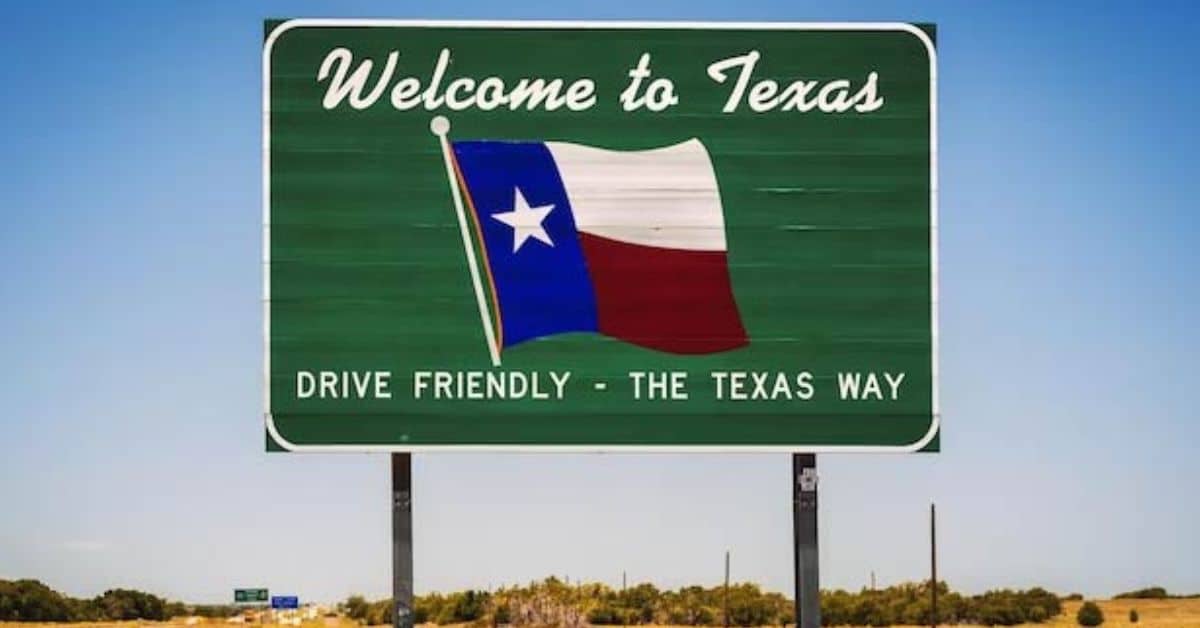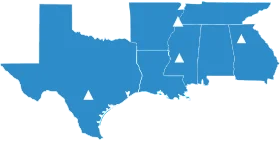Since moving to Texas in 2021, I’ve discovered here a strange—and strangely bipartisan—hatred of Californians.
Between 2010 and 2020, California essentially lost a congressional district to Texas, with somewhere around three-quarters of a million people moving from the Golden State to the Lone Star State. And the perception on the ground is that this migration has sped up since the pandemic started.
That has sparked backlash among native Texans. You now see bumper stickers, billboards, t-shirts and memes highlighting the “California problem.”
And it’s not just a California problem. My conservative friends and neighbors believe that these new Texans—whether they be from California, Illinois, or New York—are leaving their blue states behind but bringing their vegan cupcake shops and liberal values with them. To them, this explains the recent shift to the left we’ve seen in urban and suburban Texas.
Liberals, on the other hand, see hordes of reactionary émigrés coming into the state, whether Elon Musk-loving tech bros gentrifying East Austin or wannabe cowboys fleeing high taxes and Covid restrictions for the Dallas suburbs. There is history here, too—out-of-staters were behind the initial Republican surge in Texas, as growth in the energy and finance sectors in the mid-20th century brought thousands of new Republican voters from elsewhere in the country (think of Connecticut-born George H.W. Bush) into the home state of LBJ and Ralph Yarborough, slowly turning Texas from blue to red.
So who’s right? In 2018, exit polls showed Beto O’Rourke beat Ted Cruz among native-born Texans, while Cruz won those born out-of-state by a wide margin. But exit polls can be unreliable, so we decided to poll non-native Texans to see where they stand politically.
How we conducted the poll
L2, a national voter list, collects data from the National Change of Address (NCOA) database to determine which new registrants have moved across state lines. We used that to pull a sample of Texas voters who—at some point—lived in another state. We then filtered out anyone who said they were born in Texas to find a list of emigrants from other U.S. states. It would have been great to find a list of just California-to-Texas movers, but there were not enough in the database for us to pull a reliable sample. The poll was conducted by sending text messages with a link to an online survey to targeted voters. Responses were weighted by age, ethnicity, gender, and education to match within the voter file for all Texas registered voters who fit the criteria mentioned above.
What we found
Overall, non-native Texans were much more conservative than the state as a whole, and some moved to Texas explicitly because of its conservative politics.
In the 2022 gubernatorial election, new Texans supported Greg Abbott over Beto O’Rourke 47%-34% (12% of those we surveyed did not vote and 6% could not remember who they supported). In a hypothetical 2024 rematch, Donald Trump leads Joe Biden 54%-42% among this cohort. Voters from out West—including California—were the most conservative group, as they supported Trump 64%-32%. Also of note, emigrants from blue states were more Republican (supporting Trump 56%-39%) than those who came to Texas from red states (50% Trump-46% Biden).
When asked why they decided to move to Texas, 4.5% of respondents listed the state’s conservative politics as the motivating factor, with no prompting from us. And when asked how the state’s politics impacted their decision, nearly a third of respondents said they were more excited to move here because of Texas’ Republican-controlled state government (compared to just 18% who said it made them hesitant).
40% of respondents said they were more conservative than the average Texan, while 35% said they were more liberal than the average Texan. Only in the Austin metro area did a majority (56%) of respondents say they were more liberal than the average Texan. And despite fears from conservatives that blue staters are trying to import liberal values to the state, only 33% of those we spoke to who moved here from blue states said they were more liberal than the average Texan.
Finally, even among this group of voters who were not born in Texas, we found some California hate. When asked what the number one issue facing Texas was, 1% of respondents said “California” or “Californians”—roughly the same number who mentioned “health care” or “crime.” And another 2% mentioned the growing population in general. (Border security was the number one issue—30% of respondents listed it as their chief concern.)
You can view full-weighted crosstabs and toplines here.
About Blueprint
Brannon Miller lives in San Antonio, TX and is the managing partner of Chism Strategies and its sister company, Blueprint Polling. This survey of 522 voters February 8-10, 2023, was conducted via sending text messages with a link to an online survey to targeted voters and has a margin of error of +/- 4.29%. The survey was weighted by age, ethnicity, gender, and education. Blueprint conducted this research with no input or funding from any candidate, committee, or interest group. For more information call Brannon Miller at 601-402-3281.


